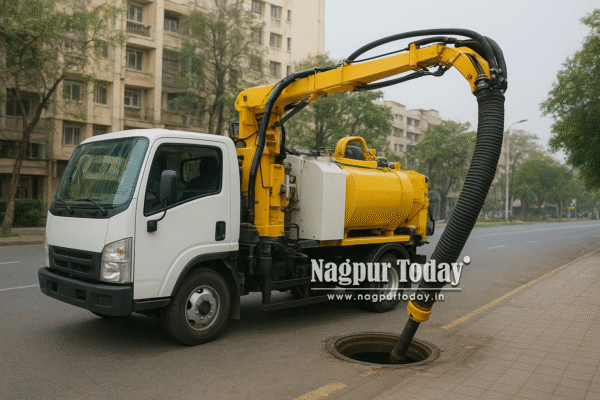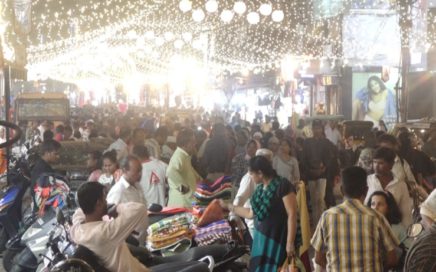 Mumbai: In a landmark initiative to eradicate the inhuman and hazardous practice of manual scavenging, the Maharashtra Government has approved the purchase of 100 vehicle-mounted robotic sewer-cleaning machines worth Rs 100 crore. The move marks a significant technological leap toward ensuring safety and dignity for sanitation workers across the State.
Mumbai: In a landmark initiative to eradicate the inhuman and hazardous practice of manual scavenging, the Maharashtra Government has approved the purchase of 100 vehicle-mounted robotic sewer-cleaning machines worth Rs 100 crore. The move marks a significant technological leap toward ensuring safety and dignity for sanitation workers across the State.
The high-tech machines will replace manual sewer cleaning, which often exposes workers to toxic gases and life-threatening conditions. Officials said sanitation workers currently engaged in the job will be trained and given priority in operating the new equipment, ensuring both employment continuity and skill upgradation.
Initially, the procurement of these machines was to be handled by the Urban Development Department, headed by Deputy Chief Minister Eknath Shinde. However, after prolonged delays, the task has now been transferred to the Social Justice and Special Assistance Department, led by Minister Sanjay Shirsat.
In the first phase, 29 robotic machines, one for each municipal corporation, including Nagpur, will be procured. The process will be managed through the Mahatma Phule Backward Classes Development Corporation.
A state-level procurement committee, chaired by Principal Secretary Harshadeep Kamble, has been constituted to finalise the technical specifications and eligibility criteria. The committee’s approval, along with that of the corporation’s managing director, will be mandatory for the final purchase.
“From Manhole to Machine Hole” initiative
The project will be implemented under a new state-level scheme titled “From Manhole to Machine Hole”, aligning with the Prohibition of Employment as Manual Scavengers and their Rehabilitation Act, 2013. The Act mandates the complete elimination of manual scavenging and promotes the adoption of mechanised cleaning systems for sewers and septic tanks.
“To prevent tragic deaths caused by suffocation during sewer cleaning, the government has sanctioned this scheme, which will be implemented by the Social Justice Department,” a senior official said.
Each municipal corporation will be responsible for bearing the operation and maintenance costs of the machines for the next five years. The local bodies will be allowed to determine expenses based on their specific requirements.
During the Monsoon Session of the State Legislature, Deputy Chief Minister Ajit Pawar had voiced concern over the continuing prevalence of manual scavenging, noting that nearly 8,000 workers were still engaged in such tasks across Maharashtra.
“This practice has no place in a progressive state like ours. The government is committed to ending it completely,” Pawar said during the session.
The introduction of robotic sewer-cleaning technology represents a crucial step in modernising urban sanitation infrastructure while ensuring human safety. By empowering sanitation workers to operate the machines, the government aims not only to mechanise the cleaning process but also to offer a dignified livelihood to those long trapped in this hazardous occupation.
With this initiative, Maharashtra joins a growing list of states embracing the “machine over manhole” model, signalling a future where technology replaces exploitation in urban sanitation work.













